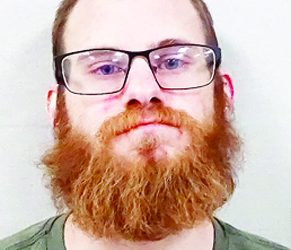By Matt Young, WV Press Association
CHARLESTON, W.Va. – The West Virginia Legislature’s Parks, Recreation and Natural Resources Subcommittee heard testimony Monday from James Bailey, acting secretary of the W.Va. Department of Commerce, and Brad Reid, chief of West Virginia State Parks, regarding the implementation of House Bill 4408.
Under the terms of HB 4408, the WVDNR (Department of Natural Resources) is granted the “authority to enter into contracts with third parties to construct recreational facilities and cabins” for all state parks and forests under their jurisdiction. The only location exempted from HB 4408 is Watoga State Park in Pocahontas County.
“At this stage, there’s not a whole lot to update publicly,” Bailey began. “We have been, since the bill became effective (in March 2022), exploring multiple different opportunities. We do have a RFP (Request For Proposal) that will be going out to the public within about a week.”
According to Bailey, the upcoming RFP will be related to “a very large campground.” However, Bailey did not specify in what state park such a campground may be located.
“We’re hoping to solicit multiple proposals from private entities who would invest their own capital into increasing these recreational opportunities for our citizens,” Bailey noted. “There are projects we’re exploring as large as that where it would be a minimum of 100 new campgrounds, and then also as small as, say, concessionaire agreements with individuals that do activities like horseback-riding.”
Bailey added that while the DNR hasn’t officially entered into any development-contracts since the passage of HB 4408, the department is hopeful that proposals regarding the new campground project will begin arriving within “a couple of weeks.”
In response to a question from Delegate Clay Riley, R-Harrison, relating to potential marketing efforts in support of future projects, Bailey said, “That’s exactly what we’re doing with this RFP.”
“We’re not just posting it on our website,” Bailey continued. “We’re actually putting it out into publications with a national readership. That way we can solicit as many proposals as possible from the people who are in this business.”
A second question from Delegate Ruth Rowan, R-Hampshire, sought a more specific location for the potential “very large campground” previously discussed, asking Bailey, “I have a feeling one of the campgrounds you’re talking about is in Cacapon State Park, is that correct?”
After Bailey confirmed that Cacapon State Park is a “possibility,” Rowan continued, saying, “People would really encourage seeing 50 (camp) sites – possibly 60. But talking about 100, they’re concerned about conservation of the area, especially the locals. And as a camper, I’m concerned. When I go camping, it’s to get out in nature. If we’re talking about 100 sites in the area, we could be talking about bumper-to-bumper. So I do have a concern there.”
“There is a public notice and public hearing component of this process,” Bailey replied. “We, of course, would be soliciting input from the public before we executed any type of contract. And to the concern, I would say that I agree. If you’re bumper-to-bumper, that’s not an attractive campground situation. The last thing that we’re going to do is building something that is not appealing to the folks that use the parks. You’re not going to get very much business if you build downtown Manhattan in Cacapon State Park.”
“If you lose the appeal of a park, then you’re going to lose the people who provide the business to that park,” Bailey concluded.
State Parks Chief Brad Reid then approached the microphone to address a question from Sen. David Stover, R-Wyoming, regarding the possibility of “RV only” campgrounds, saying, “When I camp, it’s my goal to get as far away from other folks as possible.”
“To reiterate what the secretary (Bailey) said, I don’t believe that we’re looking at defining specifically, ‘this has got to be an RV campground, or tent campground,’” Reid noted.






